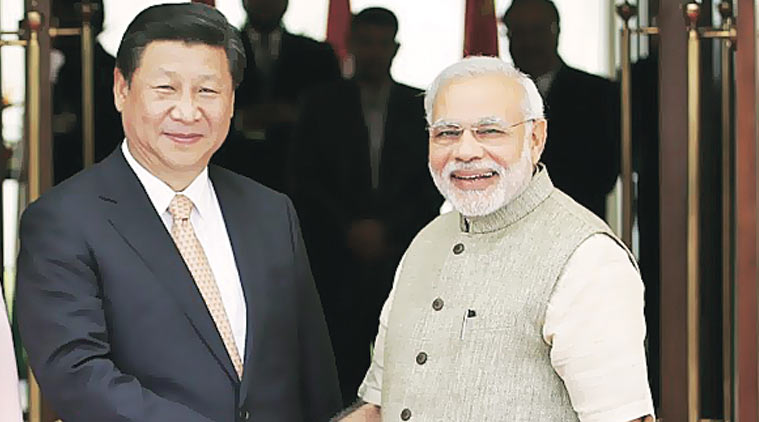Ahead of the weekend meeting between Prime Minister Narendra Modi and President Xi Jinping, China Monday said it was “ready” for talks with India on the latter’s entry into the Nuclear Suppliers Group (NSG).

WATCH VIDEO: China Ready For Consensus On NSG But Opposes Ban On JeM chief
Story continues below this ad
In June this year, Modi had urged Xi to consider India’s NSG case favourably, but China rebuffed India’s request at the NSG plenary in Seoul.
On Monday, Beijing also stuck to its stand on extending a hold on New Delhi’s bid for a UN ban on Pakistan-based Jaish-e-Mohammad chief Masood Azhar, saying it is opposed to anyone making “political gains in the name of counter-terrorism”.
While Beijing’s conciliatory tone on the NSG issue was perceived by some in New Delhi as a positive development, sources pointed out that there has been no visible progress on India’s entry into the export control regime.
There have been talks between Indian and Chinese negotiators in September this year, but there has been no breakthrough. The negotiators are likely to meet again in October, but no official announcement of that meeting has been made so far.
Story continues below this ad
“The Chinese leadership has to take a strategic decision on the issue… the government wants Beijing to make a distinction between the applications of India and Pakistan. We hope to see some movement forward,” a source said.
China’s Vice Foreign Minister Li Baodong, speaking to reporters in Beijing Monday, underlined the need to build consensus over admission of new members in the 48-member NSG.
Li said NSG rules stipulate consensus among members to admit new ones: “These rules are not to be decided by China alone. On the issue, China and India have maintained good communication and we are ready to continue consultations with India to build consensus and we also hope India can go to other members of the NSG as well.”
“In this aspect, we are also ready for discussions with India to explore possibilities but things need to be in keeping with procedures, norms and regulations of the NSG. On this issue, China’s position is consistent. That is why China has often said international law must be observed,” he said.
Story continues below this ad
On China’s move to block India’s bid for a UN ban on Masood Azhar, Li said, “China is opposed to all forms of terrorism. There should be no double standards on counter-terrorism. Nor should one pursue own political gains in the name of counter-terrorism.”
His remarks were seen as a veiled reference to India which has accused Pakistan of turning a blind eye towards the Jaish chief, accused of planning the Parliament House attack in 2001 and, more recently, the attack on the Pathankot airbase.
China had announced extension of its “technical hold” on India’s bid to get Azhar designated as a terrorist by the UN on October 1, days before it was to run out. The hold can continue for up to three more months.
China was diplomatic in its response to a question about Pakistan being “kept out” of interactions between BRICS and BIMSTEC leaders in Goa. There is “no attempt to form a clique” to keep any country out, Li said.
Story continues below this ad
Brazil, Russia, India, China and South Africa make BRICS while BIMSTEC or the Bay of Bengal Initiative for Multi-Sectoral Technical and Economic Cooperation comprises Bangladesh, India, Myanmar, Sri Lanka, Thailand, Bhutan and Nepal.
Instead of SAARC, New Delhi decided to invite BIMSTEC countries, so that Pakistan stays out. “China appreciates India’s arrangements for the Goa summit and is grateful for that,” he said.
“All of this show that BRICS members are ready to have dialogue and communication with others. Such dialogue is transparent. It is an inclusive process and not targeted at any third party, not forming cliques to exclude any particular country. Such dialogue is an inclusive one. Hope such dialogue will enhance cooperation among BRICS countries and strengthen cooperation between BRICS and other regional organisations and regional countries,” he said.— With PTI from Beijing

 Xi, Modi will meet on Saturday
Xi, Modi will meet on Saturday






